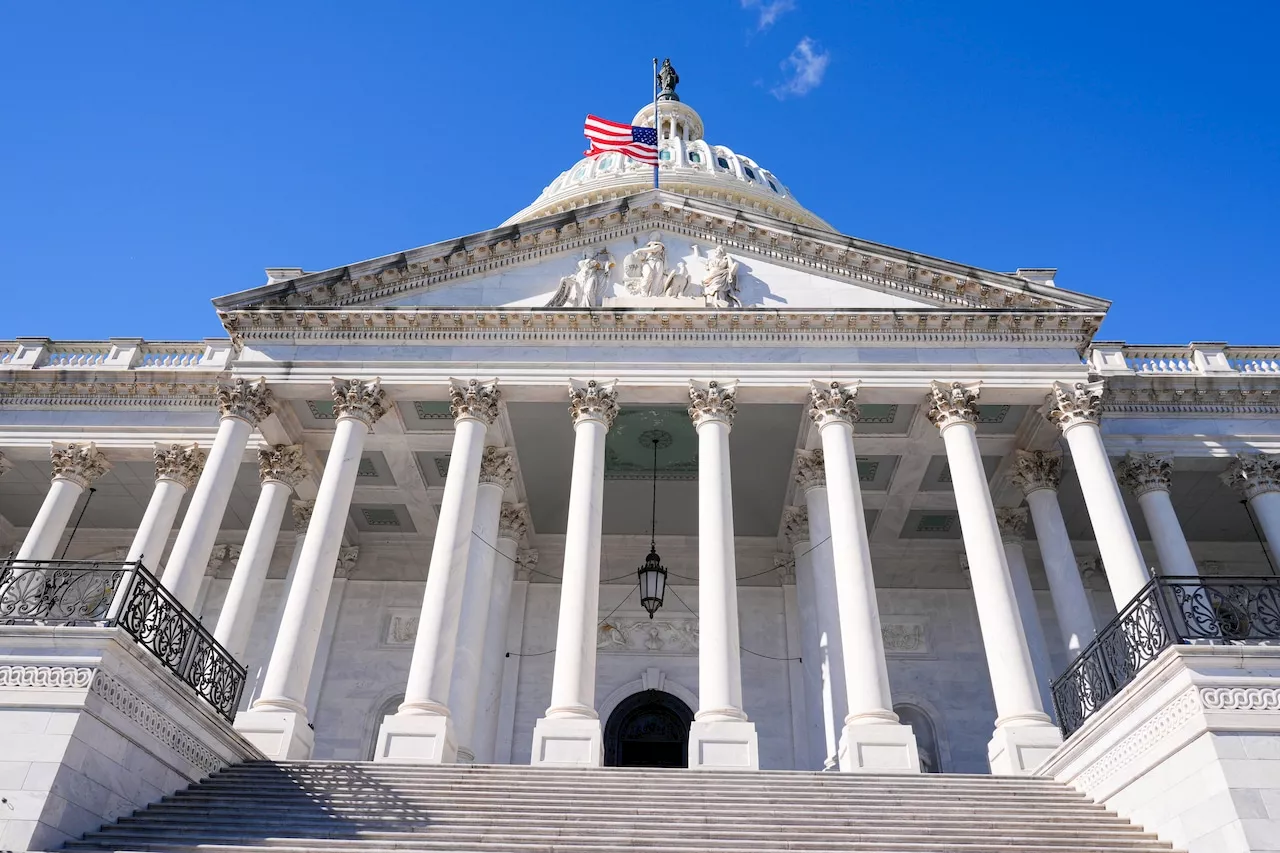Politics
Senate Passes Compromise Bill to End Government Shutdown

The U.S. Senate approved a compromise agreement on November 6, 2025, aimed at ending the ongoing government shutdown that has persisted for over a month. In a decisive vote of 60-40, the Senate moved forward with a plan that includes funding for government operations, a mid-December vote on extending Affordable Care Act tax credits, and provisions for back pay to federal workers affected by the shutdown.
Moderate Democrats played a crucial role in advancing the legislation, despite internal dissent regarding the absence of guaranteed health care subsidies. This compromise has sparked frustration among many in the Democratic caucus, who argue that it compromises essential health care support for millions of Americans.
Details of the Compromise Agreement
The legislation ensures funding for various government programs, including food assistance and veterans’ benefits, while extending overall government funding until late January 2026. The agreement emerged after a protracted six-week stalemate, during which a group of moderate Democrats, including Senators Jeanne Shaheen, Maggie Hassan, and Angus King, negotiated with Republican leaders. They ultimately agreed to proceed without a definitive extension of the Affordable Care Act tax credits, which are set to expire on January 1, 2026.
Senate Majority Leader John Thune quickly endorsed the deal, highlighting the urgency of resolving the shutdown. However, Senate Democratic Leader Chuck Schumer opposed the measure, joining most of his colleagues in expressing concerns over the lack of commitment to health care subsidies. Schumer stated he could not support the package “in good faith,” emphasizing the need for a stronger stance on health care.
Political Reactions and Future Implications
The compromise has drawn criticism from various Democratic leaders. Bernie Sanders, an Independent senator who caucuses with the Democrats, called the decision to move forward without health care guarantees a “horrific mistake.” Chris Murphy, a Democratic senator from Connecticut, echoed these sentiments, claiming that the recent elections reflected a public demand for Democrats to maintain their commitment to health care issues.
Despite the division within the Democratic Party, some senators, including Tim Kaine of Virginia, voted in favor of the agreement, indicating a willingness to proceed in the face of dissent. The final passage of the legislation may still face delays if Democrats choose to object, potentially prolonging the shutdown.
In the House of Representatives, reactions mirrored those in the Senate, with House Democratic Leader Hakeem Jeffries blaming Republicans for the ongoing crisis. He asserted that the Republican Party is responsible for the “toxic mess” affecting the nation.
As discussions continue regarding the health care subsidies, uncertainty remains about whether the two parties can reach a consensus before the upcoming December vote. While some Republicans have shown openness to extending the subsidies, they are also advocating for limits on eligibility and changes to the funding mechanisms.
The situation has dire implications for federal workers and the broader public, particularly as flight delays and other disruptions have escalated due to the shutdown. Treasury Secretary Sean Duffy warned that air travel could be severely impacted in the lead-up to the Thanksgiving holiday if the government remains closed.
As the Senate navigates the complexities of the compromise, the focus will shift to whether lawmakers can secure a more comprehensive agreement on health care before the impending deadline.
-

 Science4 weeks ago
Science4 weeks agoIROS 2025 to Showcase Cutting-Edge Robotics Innovations in China
-

 Lifestyle4 weeks ago
Lifestyle4 weeks agoStone Island’s Logo Worn by Extremists Sparks Brand Dilemma
-

 Politics4 weeks ago
Politics4 weeks agoJudge Considers Dismissal of Chelsea Housing Case Citing AI Flaws
-

 World4 weeks ago
World4 weeks agoBravo Company Veterans Honored with Bronze Medals After 56 Years
-

 Health4 weeks ago
Health4 weeks agoStartup Liberate Bio Secures $31 Million for Next-Gen Therapies
-

 Science4 weeks ago
Science4 weeks agoArizona State University Transforms Programming Education Approach
-

 Lifestyle4 weeks ago
Lifestyle4 weeks agoMary Morgan Jackson Crowned Little Miss National Peanut Festival 2025
-

 Health4 weeks ago
Health4 weeks agoTop Hyaluronic Acid Serums for Radiant Skin in 2025
-

 Top Stories3 weeks ago
Top Stories3 weeks agoUrgent Weather Update: Chicago Forecast for October 20 Revealed
-

 World4 weeks ago
World4 weeks agoHoneywell Predicts Record Demand for Business Jets Over Next Decade
-

 Sports4 weeks ago
Sports4 weeks agoYamamoto’s Mastery Leads Dodgers to 5-1 Victory in NLCS Game 2
-

 Top Stories4 weeks ago
Top Stories4 weeks agoIndonesia Suspends 27,000 Bank Accounts in Online Gambling Crackdown









